Related Research Articles
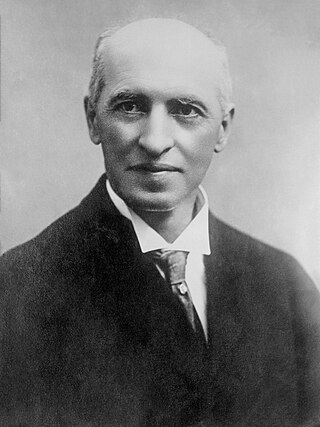
Arthur Lewis Watkins Sifton, was a Canadian lawyer, judge and politician who served as the second premier of Alberta from 1910 until 1917. He became a minister in the federal cabinet of Canada thereafter. Born in Canada West, he grew up there and in Winnipeg, where he became a lawyer. He subsequently practised law with his brother Clifford Sifton in Brandon, where he was also active in municipal politics. He moved west to Prince Albert in 1885 and to Calgary in 1889. There, he was elected to the 4th and 5th North-West Legislative Assemblies; he served as a minister in the government of premier Frederick Haultain. In 1903, the federal government, at the instigation of his brother, made Sifton the Chief Justice of the Northwest Territories. After Alberta was created out of a portion of the Northwest Territories in 1905, Sifton became the first Chief Justice of Alberta in 1907 and served until 1910.

The premier of Ontario is the head of government of Ontario. Under the Westminster system, the premier governs with the confidence of a majority the elected Legislative Assembly; as such, the premier typically sits as a member of Provincial Parliament (MPP) and leads the largest party or a coalition of parties. As first minister, the premier selects ministers to form the Executive Council, and serves as its chair. Constitutionally, the Crown exercises executive power on the advice of the Executive Council, which is collectively responsible to the legislature.

The 1875 Quebec general election was held on July 7, 1875, to elect members of the 3rd Legislative Assembly for the Province of Quebec, Canada. The Quebec Conservative Party, led by Charles-Eugène Boucher de Boucherville, defeated the Quebec Liberal Party, led by Henri-Gustave Joly de Lotbinière.

Francis Evans Cornish was a Canadian politician. He served as Mayor of London, Canada West, in the early 1860s, became the first Mayor of Winnipeg in 1874, and was for a time a member of the Legislative Assembly of Manitoba.

The 1875 Ontario general election was the third general election held in the Province of Ontario, Canada. It was held on January 18, 1875, to elect the 88 Members of the 3rd Legislative Assembly of Ontario ("MLAs").
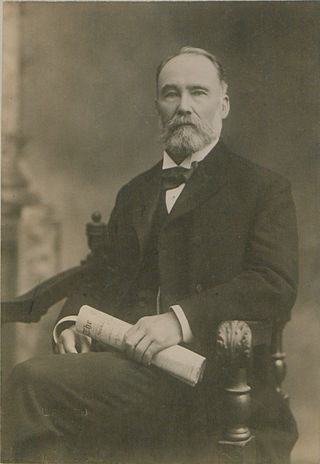
The 1902 Ontario general election was the tenth general election held in the Province of Ontario, Canada. It was held on May 29, 1902, to elect the 98 Members of the 10th Legislative Assembly of Ontario ("MLAs").

Thomas Ballantyne was a Canadian politician and Speaker of the Ontario Legislature.

Adam Crooks, was an Ontario Member of the Legislative Assembly of Ontario for Toronto West from 1871 to 1874 and moved to the riding of Oxford South from 1875 to 1886.
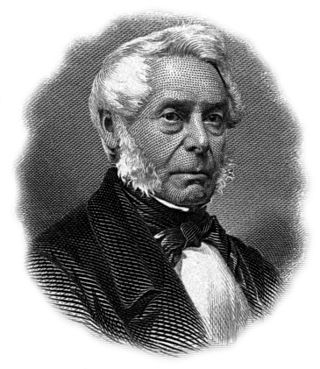
William Hamilton Merritt was a businessman and politician in the Niagara Peninsula of Upper Canada in the early 19th century. Although he was born in the United States, his family was Loyalist and eventually settled in Upper Canada. Merritt fought in the War of 1812, was captured by the invading American forces, and held as a prisoner of war. After the war, he returned to the Niagara region and began a career in business. He was one of the founders of the Welland Canal. He was a supporter of the Abolitionist cause to end slavery in the U.S., and of the settlement of escaped slaves in St. Catharines.
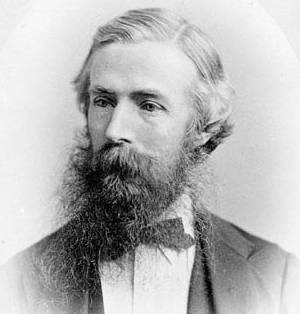
Thomas Hodgins, was an Ontario, Canada lawyer and political figure. He represented Elgin West in the Legislative Assembly of Ontario as a Liberal member from 1871 to 1878.

Thomas Charles Paxton was a Canadian politician, businessman and sheriff. As a partner in industrial business ventures, he was one of the founding fathers of Port Perry. He helped establish the first steam-powered sawmill on Lake Scugog in 1846, then later operated a flour mill and was a partner in a foundry which manufactured machinery for agriculture and mills. He turned to politics in 1854, served as the second reeve of Reach and Scugog Townships, and he was the first person to represent the Ontario North electoral district in the Legislative Assembly of Ontario. He won four elections to the provincial parliament, where he served in office from 1867 to 1881, and took interest in legislation for railways and the timber industry. He partnered with other local businessmen in 1867 to construct the Port Whitby and Port Perry Railway which was completed in 1872. He resigned from the legislature in 1881 to serve as sheriff of Ontario County until 1887, when succeeded by his son, J. F. Paxton.
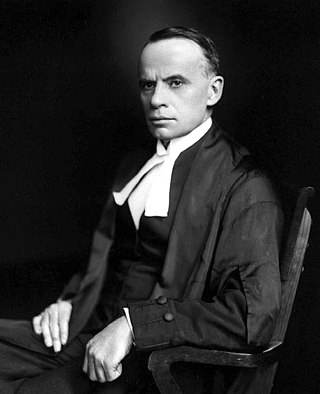
Charles Allan Stuart was a Canadian politician and jurist in the province of Alberta. Born in Canada West and educated in the same area after it became Ontario, he came west in 1897 and set up a law practice in Calgary. After a failed election bid to the Legislative Assembly of the Northwest Territories, he was elected to the Calgary City Council and then to the Legislative Assembly of Alberta. He resigned before the end of his term in the latter body to accept a judgeship on the Supreme Court of the Northwest Territories. He was later appointed to the new Supreme Court of Alberta. He was also the first Chancellor of the University of Alberta, serving in that capacity from 1908 until his death in 1926.
The 3rd Parliament of Ontario was in session from 18 January 1875 until 25 April 1879, following the 1875 general election in which the Liberal Party was returned as the majority party. Oliver Mowat was again the province's Premier.

The Second Legislature of Quebec was the provincial legislature of Quebec, Canada from 1871 to 1875, following the general election of 1871.
Nathaniel Currie (Curry) (1825 - 1889) was elected MPP in the 1st Legislative Assembly of Ontario during the Confederation elections of 1867. Born of Irish immigrants in Chinguacousy, Upper Canada, the family farmed in the Glencoe area. His father, Nathaniel Currie Sn. petitioned for land in Mosa County, from York where he had originally petitioned for land in Upper Canada. Currie married Elizabeth Weeks in Mosa in 1845 having ten children together. He was buried in the Oakland Cemetery, Mosa, Row 11, no. 17 at age 74.
Middlesex East was an electoral riding in Ontario, Canada. It was created in 1867 at the time of confederation. It was abolished in 1925 before the 1926 election.
Middlesex North was an electoral riding in Ontario, Canada. It was created in 1867 at the time of confederation and was abolished in 1973 before the 1975 election.
Oxford North was an electoral riding in Ontario, Canada. It was created in 1867 at the time of confederation and was abolished in 1933 before the 1934 election.
Elgin West was an electoral riding in Ontario, Canada. It was created in 1867 at the time of confederation and was abolished in 1933 before the 1934 election. After the 1875 election, Malcolm Munroe was declared the winner by 10 votes. The runner-up and incumbent Thomas Hodgins, petitioned for a recount and after analysis, he was found to have won by 8 votes. Therefore Hodgins regained his seat. Munroe's tenure was so short that he never served in the legislature.
Hastings West was an electoral riding in Ontario, Canada. It was created in 1867 at the time of confederation. It was abolished in 1966 before the 1967 election into Hastings and Quinte.
References
- ↑ Patton, James; Ardagh, W. D.; Harrison, Robert Alexander; O'Brien, Arthur Henry; Labatt, Charles Bagot; Morse, Charles (1875). The Canada Law Journal. Canada law book Company, limited.
- ↑ Hodgins, Thomas (1883). Reports of the Decisions of the Judges for the Trial of Election Petitions in Ontario: Relating to Elections to the Legislative Assembly of Ontario, 1871-5-9, and to the House of Commons of Canada, 1874-8. Carswell.
- ↑ Forman, Debra (1984). Legislators and Legislatures of Ontario: 1867-1929. Ontario Legislative Library, Research and Information Services. ISBN 9780774390217.
- ↑ The Canadian Parliamentary Companion. Citizen Print. and Publishing Company. 1878.
- ↑ "Data Explorer". Elections Ontario. 1875. Retrieved April 6, 2024.